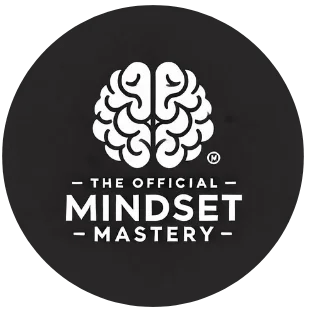Personal development is a lifelong journey that empowers individuals to reach their full potential and achieve lasting success. In today’s fast-paced world, mastering effective strategies for self-improvement has become more crucial than ever. According to a 2023 study by the American Psychological Association, individuals who actively engage in personal development practices report a 40% higher level of life satisfaction compared to those who don’t. Let’s explore some powerful strategies to unlock your potential and transform your life.
Cultivate a growth mindset
At the core of personal development lies the concept of a growth mindset. This powerful mental approach, popularized by psychologist Carol Dweck, emphasizes the belief that abilities and intelligence can be developed through dedication and hard work. Adopting a growth mindset is fundamental to overcoming challenges and achieving long-term success.
To cultivate a growth mindset :
- Embrace challenges as opportunities for learning
- View failures as stepping stones to success
- Practice positive self-talk and reframe negative thoughts
- Seek constructive feedback and use it to improve
Thomas Harper, a renowned personal development expert, emphasizes the importance of a growth mindset in his bestselling book “Unlock Your Potential : A Journey to a Growth Mindset.” He states, “Your beliefs about yourself and your abilities shape your reality. By cultivating a growth mindset, you open doors to endless possibilities and continuous improvement.”
Implementing a growth mindset in your daily life can lead to increased resilience, improved problem-solving skills, and a greater sense of purpose. Remember, every challenge is an opportunity to grow, and with the right mindset, you can overcome any obstacle in your path.
Set SMART goals and create actionable plans
Goal-setting is a crucial component of personal development. However, not all goals are created equal. To maximize your chances of success, it’s essential to set SMART goals – Specific, Measurable, Achievable, Relevant, and Time-bound. This framework provides a clear roadmap for your personal growth journey.
Here’s a simple table to help you understand the SMART goal framework :
| SMART Criteria | Description | Example |
|---|---|---|
| Specific | Clearly define what you want to achieve | Learn to speak French fluently |
| Measurable | Establish concrete criteria for measuring progress | Pass the B2 level French proficiency test |
| Achievable | Ensure the goal is realistic and attainable | Study French for 1 hour daily for 12 months |
| Relevant | Align the goal with your overall objectives | Enhance career prospects in international business |
| Time-bound | Set a specific deadline for achieving the goal | Complete the B2 test within 18 months |
Once you’ve set your SMART goals, it’s crucial to create actionable plans to achieve them. Break down your goals into smaller, manageable tasks and establish regular milestones to track your progress. This approach helps maintain motivation and provides a clear path forward.
Remember, consistency is key in personal development. As Thomas Harper often emphasizes in his workshops, “Small, consistent actions compound over time to create remarkable results.” By setting SMART goals and following through with dedicated action, you pave the way for significant personal growth and achievement.
Develop a growth-oriented routine
Creating a daily routine that supports your personal development goals is essential for long-term success. A well-structured routine helps you build positive habits, increase productivity, and maintain focus on your objectives. The key is to incorporate activities that nurture your mind, body, and spirit.
Consider including the following elements in your growth-oriented routine :
- Morning meditation or mindfulness practice : Start your day with clarity and purpose
- Physical exercise : Boost your energy and mental acuity
- Learning or skill development : Dedicate time to expanding your knowledge or honing a new skill
- Reflection and journaling : Process your thoughts and track your progress
- Gratitude practice : Cultivate a positive mindset and appreciate your journey
Thomas Harper, drawing from his experience as a consultant and personal development expert, advocates for the power of consistent routines. In his popular blog, Mindset Mastery, he shares, “Your daily habits are the building blocks of your future self. By consciously designing your routine, you’re actively shaping the person you want to become.”
It’s important to note that developing a new routine takes time and patience. According to a study published in the European Journal of Social Psychology, it takes an average of 66 days for a new habit to become automatic. Be patient with yourself and stay committed to your growth journey. Remember, progress, not perfection, is the goal.
Embrace continuous learning and self-reflection
In our rapidly evolving world, the ability to adapt and learn continuously is more valuable than ever. Embracing a lifelong learning mindset is crucial for personal development and staying relevant in both personal and professional spheres. This approach involves actively seeking new knowledge, skills, and experiences that broaden your perspective and enhance your capabilities.
To foster a culture of continuous learning in your life :
- Read widely across various subjects
- Attend workshops, webinars, or online courses
- Seek mentorship or join professional networks
- Experiment with new hobbies or interests
- Engage in thought-provoking discussions with diverse individuals
Equally important is the practice of self-reflection. Regular introspection allows you to gain deeper insights into your thoughts, behaviors, and motivations. This self-awareness is crucial for identifying areas of improvement and aligning your actions with your values and goals.
Thomas Harper, drawing from his studies in psychology at the University of California, Berkeley, emphasizes the transformative power of self-reflection. He states, “Self-reflection is the mirror that shows us our true selves. It’s through this honest examination that we can identify our strengths, acknowledge our weaknesses, and chart a course for meaningful growth.”
To incorporate self-reflection into your personal development journey, consider these practices :
- Daily journaling : Record your thoughts, experiences, and insights
- Regular self-assessments : Evaluate your progress towards your goals
- Mindfulness meditation : Cultivate present-moment awareness
- Feedback seeking : Ask for honest input from trusted friends or mentors
Remember, personal development is a lifelong journey, not a destination. By embracing continuous learning and self-reflection, you equip yourself with the tools necessary for ongoing growth and adaptation in an ever-changing world. As you implement these strategies, you’ll find yourself unlocking new levels of potential and achieving lasting success in all areas of your life.





